We try to eat as cleanly as possible and sometimes, it can get daunting. But knowing what some food safety experts won't even eat, it's not hard to be convinced that it's worth effort, Check out this list from prevention magazine and find out how you can avoid some of these foods that they won't even eat.
7 Foods Even Food Safety Experts Won't Eat
1. Canned Tomatoes
According to Fredrick vom Saal, PhD, an endocrinologist who studies bisphenol-A, the resin linings of tin cans contain Bisphenol-A, a synthetic estrogen that has been linked to ailments ranging from reproductive problems to heart disease, diabetes, and obesity. Unfortunately, acidity, especially tomatoes, causes BPA to leach into your food. Studies show that "you can get 50 mcg of BPA per liter out of a tomato can, and that's a level that is going to impact people, particularly the young," since it's an endocrine disrupter, says vom Saal. "I won't go near canned tomatoes."
And remember my recent post about BPA in toilet paper and I didn't know what to do with a case of my tomato cans? Well, Dr. Saal's statement further proves that I should just throw them away and not even donate them.
Update (Nov. 2011) - The NY Times reported a study by Harvard School of Public Health revealed that after eating canned soup for one week, subjects' BPA levels rose by over 1,200 percent.
How to avoid it: Choose tomatoes in glass bottles (lids do have BPA lining though), such as the brands Bionaturae and Coluccio. You can also get several types in Tetra Pak boxes, like Trader Joe's and Pomi
2. Corn-Fed Beef
Joel Salatin, co-owner of Polyface Farms and author of half a dozen books on sustainable farming says, cattle evolved to eat grass, not grains. But most farmers raise their animals on cheap corn and soybeans, which fatten up the animals faster for slaughter. More money for cattle farmers means a lot less nutrition for us. A recent comprehensive study conducted by the USDA and researchers from Clemson University found that compared with corn-fed beef, grass-fed beef is higher in beta-carotene, vitamin E, omega-3s, conjugated linoleic acid (CLA), calcium, magnesium, and potassium. It's lower in inflammatory omega-6s; and lower in saturated fats that have been linked to heart disease. "We need to respect the fact that cows are herbivores, and that does not mean feeding them corn and chicken manure," says Salatin. And according to Food Inc., corn-fed cows are more susceptible to E-Coli colonization in their stomachs, leading to more exposure to E-Coli even before they are slaughtered.
How to avoid it: Buy grass-fed beef, which can be found at farmers' markets, local farms, and at national chain, Whole Foods. Or buy a quarter or half of a cow from a local farmers that raise grass fed meats. Eat Wild is a site that lists all the grass farmers in your state. You can search to see if any of them will ship if you can't go there.
3. Microwave Popcorn
Environmental Working Group studies chemicals extensively and according to its senior scientist, Olga Naidenko, PhD, chemicals, including perfluorooctanoic acid (PFOA), in the lining of the bag, may be linked to infertility in humans, according to a recent study from UCLA. In animal testing, the chemicals cause liver, testicular, and pancreatic cancer. Studies show that microwaved chemicals vaporize and migrate into your popcorn. "They stay in your body for years and accumulate there," says Naidenko.
How to avoid it: Pop natural popcorn kernels the old-fashioned way: in a Hot Air Popcorn Maker or read how to pop popcorn on a skillet here. You can add real butter or dried seasonings and it's cheaper too.
4. Non-organic Potatoes
Jeffrey Moyer, chair of the National Organic Standards Board, states that "root vegetables absorb herbicides, pesticides, and fungicides that wind up in soil. The potatoes are treated with fungicides during the growing season, then sprayed with herbicides to kill off the fibrous vines before harvesting. After they're dug up, the potatoes are treated yet again to prevent them from sprouting." Most of the potatoes you buy in the grocery stores won't sprout if you left them alone but organic potatoes will. You can do a science experiment by trying to sprout them to see how they compare. According to Moyer, "I've talked with potato growers who say point-blank they would never eat the potatoes they sell. They have separate plots where they grow potatoes for themselves without all the chemicals."
How to avoid it: Buy organic potatoes. Washing isn't good enough if you're trying to remove chemicals that have been absorbed into the flesh all those months.
5. Farmed Salmon
When I visited the Northwest with my family, I've seen salmon jump in the river. I've visited a salmon hatchery where they grow them from eggs to be released into the wild. So I know, it's abnormal to raise salmon in crowded pens for food. Besides just the concept of crammed physical component of farmed salmon, the their feed is not what nature intended either. They are fed "soy, poultry litter, and hydrolyzed chicken feathers." As a result, farmed salmon is lower in vitamin D and higher in contaminants, including carcinogens, PCBs, brominated flame retardants, and pesticides such as dioxin and DDT.
According to David Carpenter, MD, director of the Institute for Health and the Environment at the University at Albany and publisher of a major study in the journal Science on contamination in fish, the most contaminated fish come from Northern Europe. "You can only safely eat one of these salmon dinners every 5 months without increasing your risk of cancer," says Carpenter. "It's that bad." Preliminary science has also linked DDT to diabetes and obesity, but some nutritionists believe the benefits of omega-3s outweigh the risks. There is also concern about the high level of antibiotics and pesticides used to treat these fish. When you eat farmed salmon, you get dosed with the same drugs and chemicals.
There is also a risk of salmon being GMO salmon.
How to avoid it: Switch to wild-caught Alaskan salmon. If the package says fresh Atlantic, it's farmed.
6. Milk Produced with Artificial Hormones
According to Rick North, project director of the Campaign for Safe Food at the Oregon Physicians for Social Responsibility and former CEO of the Oregon division of the American Cancer Society, most CAFO milk producers treat their dairy cattle with recombinant bovine growth hormone rBGH or rBST, to boost milk production. But rBGH also increases udder infections and it may even cause pus in the milk. It leads to higher levels of a hormone called insulin-like growth factor in milk. In people, high levels of IGF-1 may contribute to breast, prostate, and colon cancers. "When the government approved rBGH, it was thought that IGF-1 from milk would be broken down in the human digestive tract," says North. As it turns out, the casein in milk protects most of it, according to several independent studies. "There's not 100% proof that this is increasing cancer in humans," admits North. "However, it's banned in most industrialized countries."
How to avoid it: But milk that are "rBGH-free, rBST-free, produced without artificial hormones" Or buy organic milk. These are rBGH-free.
7. Conventional Apples
According to USDA's sampling there were 47 pesticide residues found on apples. And there are known toxins for humans and bees. It is the No. 1 produce on the Dirty Dozen list from Environmental Working Group's to avoid every year. Because of the way the fruit is grown, apples have poor resistance to pests so they are sprayed frequently. Mark Kastel, former executive for agribusiness and co-director of the Cornucopia Institute, "Farm workers have higher rates of many cancers." And increasing numbers of studies are starting to link a higher body burden of pesticides (from all sources) with numerous diseases and cancers. It just makes sense to avoid pesticides at all costs. Check out the Dirty Dozen Plus and Clean Fifteen list by EWG so you know what to avoid and what are safe to buy conventional.
How to avoid it: Buy organic apples. If you can't afford organic, be sure to wash and peel them first. And make sure to buy organic apple juice.
Now you know but here are some more you should know!
- The dirty dozen - a list of foods you should DEFINITELY buy organic and another dozen you don't have to - from Environmental Working Group. Of course, make sure to store them in BPA free glass storage containers to be free of further chemical exposure for foods.
- 11 Things I never Buy to be Safe and Save Money. - why waste money when you can skip buying some of these?
- Dirty secrets from the restaurant industry experts - some you know and some might surprise you
- Make your own homemade laundry detergent - it's SAFE and CHEP!
- Ways to eat sustainably - eating sustainably for your health and the planet is easy when you keep these tips in mind.
While this post might seem daunting, it is easier for consumers to buy organic and safer foods now a days. So be an educated consumer; shop and store your food wisely.
[All Photos: via Flickr]

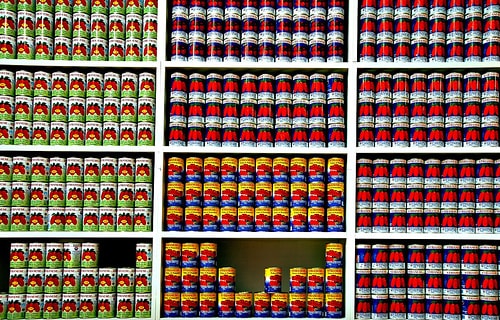
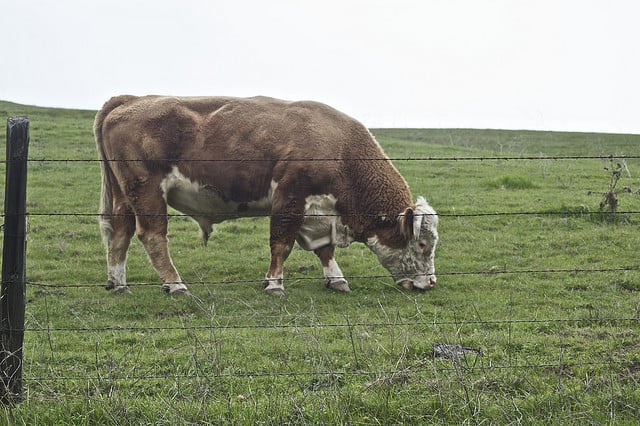

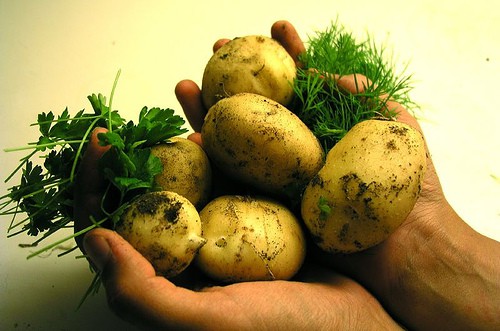

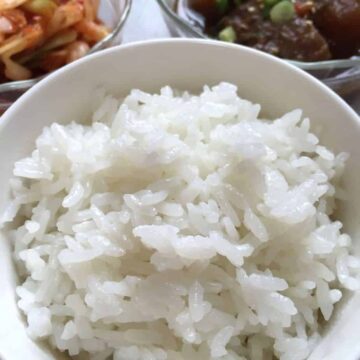
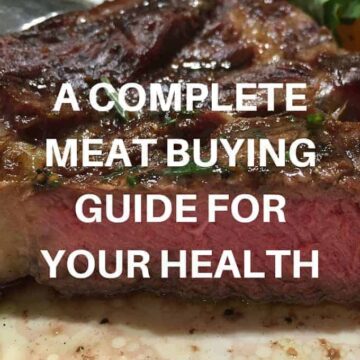
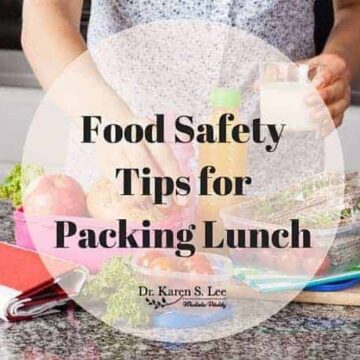
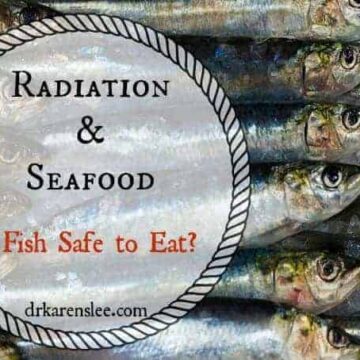
onoyoudont says
Regarding this statement of ecokaren's about dairy milk:
>>The solution: Check labels for rBGH-free, rBST-free, produced without artificial hormones, or organic milk. These phrases indicate rBGH-free products.<<
There is no test to verify. Any dairy/producer/manufacturer can put this on their product package.
Buy organic milk, or better yet buy soy/almond/rice milk!
Grateful_Grace says
This is all well and good for people with lots of money, but jarred tomatoes are three times as much (or more) where I live (NM) and the same thing for the beef, milk, and potatoes. Seriously. I think I've just about given up for the poor and lower middle class. We can't afford to eat organic at all here in NM. It breaks my heart and makes me angry at the same time.
Sigh.
ecokaren says
Grateful_Grace I hear ya. It's not easy for sure. But, I do find great organic stuff at my local wholesale clubs like Sam's club now. I buy Barilla organic spaghetti sauce, olive oil, organic apples, strawberries, spinach, and even plant derived laundry detergent that's safer for the environment (Ecos) at Sam's club. You can't find everything but it's more available now. I've given up on organic meats but I do go to the farmers market for the little bit of meat I buy. Again, not the cheapest but I figured my health is cheaper than going to the doctor so I try my best. Hang in there. We can only do the best as we can.
Cyph says
Its handy that each "expert" has their affiliation listed, so you can see the bias right there on most of them. Not saying they're wrong, just saying to be careful accepting anything blindly or letting down scrutiny in the face of "experts" - ask the questions.
Andrea says
On the canned tomatoes: you spent the money on it so your have 3 options. Either you use it, you give it away or you throw it out. As far as I understand your article you don't like any of those but that's what it comes down to.
I think using it yourself wouldn't be so bad at all. Yes, there are chemicals but I think the risk of that one batch you have is minimal. I am sure you don't buy them anymore and that's that.
The list itself is interesting and important to know. I find the popcorn quite funny. I am from Germany where we mostly have sweet popcorn. So the stuff I can buy in Canada is just not for my. Fortunately, the local Farmers Market has a guy who makes kettle corn which is sweet.
On the potatoes, ours do sprout and I am almost sure that they do come from the States once in a while. I could be wrong, I need to check.
Anyway, it's good to know such things but there are some things that can't be avoided unless you spend a high amount of money. Buying organic is important we and we sure try to do that. But living in the Prairies in Canada also means that the food prices are quite high, organics even more so.
One thing I will never worry about is the toilet paper though. That is just going one step to far. I am aware that the environment and what is produce nowadays is more chemically loaded these days and that one should try to avoid certain things. And as you said, combining several of these things lead to a higher build up. However, we also live longer these days than 20 years ago, thus more sickness occur and eventually we all going to die.
We should try to prevent such things like BPA and try to force the issue of sustainable farming of course. But on the other hand, if you worry about every little bit in your life that could potentially cause this, that or another thing you miss the whole point of living, which is right now.
karen says
Andrea,
You are absolutely right about 'living'. I get worked up when I read lists like this and then, I work it out in my head what I can live with what I can do without. Yes, TP is something I can't live without. LOL.
My parents bought my kids hot air popper for Christmas (The funny thing is, I used to have one in my dorm in college! Good things always come back!) and they love it! So much more fun to watch them pop than sticking a bag in the microwave.
I have no more cans in the house and I donated the canned tomatoes, despite my reluctance. And as far as potatoes go, some conventional ones do sprout but I find the organic ones sprout really really fast. And that goes for garlic and onions too. I never realize that phenomenon but it's interesting to see that, sadly.
Thanks for your prudent analysis. All we can do is to try our best without driving ourselves crazy. And if we 'cheat' a little once in awhile but we are good most of the time, we are still better off than most, right?
deirdre says
Andrea I can understand not wanting to worry about every little thing but...... These chemicals do not go away they accumulate slowly in your body and eventually cause neurological disease and cancers. There is also the genetic issue these chemicals damage your genes causing trouble for every generation that follows. I prefer to worry about the little things that I can deal with than wait for a big one that may kill me or run the risk of passing a problem down.
Just for the record the average age at death has started to go down again due mainly to cancer.
Lila says
First, if apples lack the robustness to resist diseases due to the fact that they are grafted, shouldn't we be eating wild apples-not organically grown grafted apple varieties?
Second, "certified organic" refers to a growing process and and does not necessarily refer to the healthiness of the end product. Many "organic" fertilizers have the exact same chemical composition as "conventional" fertilizers.
Thirdly, farmers who use "certified organic" sprays often require more applications of the spray than "conventional" sprays, and those "organic" sprays are sometimes harder on the environment than "conventional" alternatives.
Don't forget that organic agribusiness is a business just like conventional agriculture - the organic stamp is not necessarily a marker of purity or environmental sustainability.
karen says
Lila,
I agree about "wild" apples being better than grafted ones. And who knows what the process is like and how they are 'forced' to be grafted in the first place.
But given the grafted variety that are available on the market, we seem to have less choices.
Some organic fertilizers are no better than synthetic fertilizers. And that goes for the fungicides too.
This is the main reason why I like to add that eating locally grown organic produce is better than organic produce that traveled thousands of miles away, from foreign countries. If they were truly organically grown but were prepared to travel long distances, who knows how they were prepared for the journey.
In all honesty, I rather eat seasonal fruits from local farms than eating out of season fruits from foreign countries. The chemical application that they need to use for us to enjoy food all year around is not worth the risks.
savvybrown says
I knew about all of these except for the tomatoes. I'm vegetarian an I ALWAYS have canned tomatoes around. I'm going to see if TJs has them in glass jars this weekend. Thanks for this! Great blog!
- savvy
Jenn says
Holy wow. I knew about a lot of these but not all. Quite surprising about the potatos, I imagine non-organic carrots would fall into a similar category then. I used to make my tomato sauce from canned puree but recently started doing it from reduced tomatos instead. It tastes fresher and the house smells AWESOME for hours while it simmers away. Now I will also cut out the can of paste and start using cornstarch or another similar powder to thicken it instead. Fresher is always better but we still have to be mindful even there I guess.
Karen says
According to Foodnews.org, the "dirty dozen fruits" - conventional fruits and vegetables you should avoid - includes carrots. Here is a full list of foods and how much pesticide is found in them. http://www.foodnews.org/fulllist.php
Karen Eliot says
Are you using cornstarch made from organic corn? Curious as I have not seen this item -- I use arrowroot for thickening.
If you are using regular cornstarch it will be GMO, of course.
Mary says
This is a terrific article, Karen. I had heard about the health concerns of most of the foods you mentioned, except for microwave popcorn. I, personally, find the smell of popcorn being microwaved to be very repulsive, but my husband loves it. I have now convinced him to invest in an air popper. Thank you for the informative article!
Karen says
I know what you mean. The smell used to make me gag too. Now, air popping popcorn smell is clean and very nostalgic to me.
Amy says
Throwing out some food for thought on "the other side" of the beef issue.
I have to say I'm extremely skeptical on the beef issue. My hubby works for a company that sells distiller's grain (grain with out all the sugars after alcohol is made) to farmers. Grains are the seeds of grasses so several of the arguments seem on the silly side to me. Even corn is a type of grass. Seeds are very nutritious. Being an herbivore does not mean that a creature can't eat seeds. Seeds come from plants and therefore fit in the category for herbivores. Free range and smaller farms (which I think Mr. Salatin is trying to say is preferable) is nice but not always practical - especially when you have 2 feet of snow on the ground and BIG drifts in the country areas like we have here.
The manure issue though - that's just nasty. Canada has banned doing it, we should too.
Karen says
Food Inc. interviewed a researcher from Univ. of Iowa (I believe) who stated that corn fed cows produce E Coli in their stomachs but grass fed cows don't. I also think that when they say herbivores, they mean, feeding blades of grass and not the seeds of grass like corn and other byproducts. Yes, corn could be for herbivores but cows specifically need to feed on grass blades and nothing else. Their rudimentary system is not designed for anything else but to graze on grass.
Besides, they are fed not only corn but antibiotics, steroids, nutritional supplements, other meat parts from other animals, and a ton of water just so that they gain weight to be slaughtered.
Karen Eliot says
Saying that corn is the same as grass because it's a grass seed is like saying juice is equivalent to eating fruit. It is not! Juices have much more fructose and no fiber, which renders them toxic to the liver. That fiber would normally have acted to slow uptake of the fructose.
They are fed corn to make them gain weight rapidly. It makes them *sick* to eat corn, which has far too much energy for a a grazing animal. As a former farmgirl I know *how* sick -- but we slaughter and eat them before they get so sick that it's noticeable. And of course they're getting 80% of the antibiotics used in this country dumped into their feed as a preventative. It seems to make them gain weight even as it poisons we who eat it..
Anyway, that is why corn != grass.
ecokaren says
And I'm sure the feed is not organic so there is chance that it could be GMO corn. Another problem of feeding them corn.
Rachel says
great post Karen. We follow 2 (we don't eat any beef), 3, 4, 6 and 7 but need to stop the canned tomatoes and farmed salmon...
Karen says
I'm stuck on canned tomatoes myself. Still trying to figure what to do with a case I have.
Amy says
Yes. Canned tomatoes are a frustration.
Kate says
Didn't know that about the beef, popcorn or salmon, but I try to stay away from beef most of the time anyhow. So glad this was from Prevention cause now I know my mom will read it and most likely listen, where when I tell her this kind of stuff I feel like she thinks I'm making it up. 😉
Karen says
I know what you mean Kate. A lot of my friends think the same. But I think more people are becoming aware as magazines like Prevention and Good Housekeeping print articles regarding food safety and environmental issues. We can only try our best to educate as much as we can but we have to concentrate on educating our kids foremost. I think.
Amy says
Re: popcorn
I've cooked popcorn from the bags of just kernels for years in the microwave in a plain paper bag (1/4 c popcorn in bag and fold over the top) and I have to cook it about 15 seconds shorter than my normal popcorn setting. Just ad 1-2T of your favorite oil and a few shakes of popcorn salt afterward. Stir and eat. I don't like the nasty prepackaged stuff.
Karen says
We did that too before my hubby bought the air popcorn maker. I think it's so much healthier when you pop them yourself. Less salt and less oil. We don't use butter anymore either - we do the olive oil mist and then sprinkle salt.